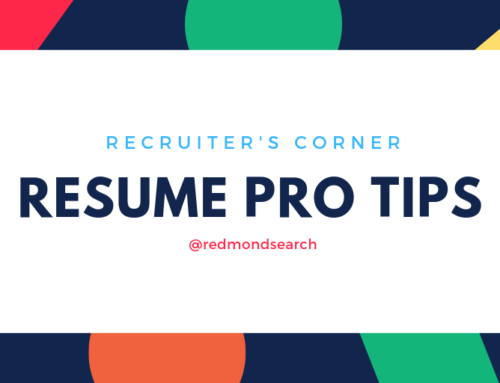 I have spoken to many people over the last year who have lost jobs, or, in the case of recent college grads, are not yet employed. It’s not a great time to look for a job. Most companies have not yet ramped up their hiring and those professionals who have jobs are doing their best to hang onto them. There’s not a lot of net gain between the two.
I have spoken to many people over the last year who have lost jobs, or, in the case of recent college grads, are not yet employed. It’s not a great time to look for a job. Most companies have not yet ramped up their hiring and those professionals who have jobs are doing their best to hang onto them. There’s not a lot of net gain between the two.
“Job Seeker” is a difficult role to play involuntarily, but it is a job, and it needs to be treated like one. My advice to all job seekers, regardless of industry, is the same: Get out from behind the computer.
There was a time when looking for a job online was the “new wave” of the job search. That was in the mid-90s for those who missed it. I know, because I was a greenback, un-networked, recruiter at the time and I used online resources to help me identify candidates I had no other way of sourcing. In the infancy of the Internet, places like CareerMosaic and Monster.com were cutting-edge, early adopter territory which allowed companies and search consultants like me to reach way beyond the limits of the traditional tools of the time. Likewise, it was the savvy job seeker who hit these portals and found themselves plucked like cherries into rewarding career baskets. Quality was high, volume was (relatively) low.
As the ‘Net has matured, job boards have proliferated. There are TENS of THOUSANDS of them. This level of maturity in the market makes it hard for companies to decide where to spend their dollars and even harder for prospective employees to determine where they can best be “found.”
But, I am not here to bash job boards, because they should play an important role in every firm’s recruiting efforts. It’s in this particular market, in today’s context, where I must tell candidates to avoid job-board dependency.
I know it feels good at the end of the day to say you have “sent out ten resumes and cover letters.” Only the magic of the Internet can allow you that level of productivity. However, despite auto-responders and other types of electronic communication that some companies try to put in place acknowledging an applicant’s efforts (most don’t even bother), the anonymity of the internet is killing your morale in so many other ways.
As a Job Seeker, you have zero control after you hit “Submit” … You don’t know the timeline, you don’t know much about the job and you don’t know if anyone has even looked at your inquiry. Of ten resumes – was even ONE seen by a decision making body? The chances are slim.
So here are three things you should do to exercise real control in your job search:
- Get Involved: If you haven’t yet, start your commitment to your profession by signing up to participate in your industry associations. Don’t just go to meetings, join committees, and volunteer your (currently ample) time. Be active and involved in your profession even when you’re not drawing a paycheck.
- Professional Development: Sign up for as much professional development as you can possibly afford. Since you’re not “learning from experience” during this period, learn from a teacher. Demonstrate that you’re taking responsibility for your own professional advancement.
- Become Active in Your Larger Community, in business and at home: Take an active role in issues which speak to your passions, whether they are focused at a community or regional level.
This is not rocket science; you know this is what you should be doing. However, it’s not WHAT you do; it’s HOW you do it.
Here’s the real key: Don’t make the mistake of getting out from behind the computer and doing the same things you do when you’re sitting in that chair….searching for jobs. If you attend all of these events and pass out resumes and introduce yourself as Jerry or Jane Job Seeker, the conversation will automatically focus on what you don’t bring to the table: a paying job, or status as a collaborator.
Instead, get involved with the whole purpose of giving what you have to offer to others. Make Social Deposits, Not Withdrawals. Find out with every contact, what someone else is trying to achieve, and how you can help them in their pursuits. Some examples somewhat specific to my industries….
- Perhaps you know someone at the agency who can help get that permit out of review purgatory?
- Perhaps you know of a DBE/WBE which might make an excellent teaming partner in pursuit of a competitive bid?
- Perhaps you, during your networking at other events/meetings, will meet someone who is a perfect fit for a job which you yourself may not be qualified?
- Perhaps you have the time to research the answer to that question your busy contact is contemplating.
Your mantra should be to keep your eyes and mind open and be **ridiculously** generous with your time and connections.
This may not land you an immediate job; you can still go home and hit the job boards. However, circulating in the flesh and blood with a genuine mission to create value (as opposed to simply serving your own needs) is an activity which will emblazon you upon the minds of people who will be anxious to return the favor one day.
What you will gain from following a plan based on these principles is a solid network of relationships…and you’ll all have each others’ backs for years to come. Hitting the “Enter” key twenty-two times a day will never come close.





That I’d great advise. I’ll use it with my son who is currently seeking higher employment.
Thanks.
This is good advice. Responses from on-line ads are very low, maybe one interview in a couple of hundred submissions. Finding the “Hidden” job market is tough too, as is making quality network connections.
Good points. My personal favorite is circulate in the flesh and blood!
Thank you very much for your great article
Instead of hitting the submit button – dropping off a resume and asking to see the person in charge of hiring can be helpful. You can simply introduce yourself and leave the resume.
As a job seeker I agree with your advice Josie. Although I have already contacted everyone suggested by my professors, recent employers and fellow distance students who live in various places around the nation in an effort to try and network, and have offered my services to them in whatever way I can. It’s just a really tough market out there and it does weigh heavily on one’s self-esteem. I know there are avenues I haven’t pursued, but I am trying.
In my particular case there aren’t a lot of local venues to peruse for networking opportunities, which adds to the challenge. Having just moved to this rural community of 1500 with no family or friends close by makes it difficult. There is a larger community, nearly 35,000, about thirty miles away which has a monthly meeting of the local chapter of ASCE for students and there might very well be some opportunity there, although I haven’t checked it out yet. I didn’t bother to join while in university this past year for a variety of reasons, but mostly because as a mature student, getting together with the under 25’s for a student meeting is kind of like going to the bar and hoping to find the love of your life. At best it might be interesting and at worst it could be ‘what was I thinking?’
As a side bar, my husband and I, both recent graduates and mature students, attended our school’s career fair in October last year. Now without asking people directly how they felt, it was blatantly obvious to me what they were thinking. It wasn’t only the students who were looking at us this way, it was also the recruiters who were there at the different booths. I imagine the voice inside their heads went something like this, “Look at those old people, how dare they come to our career fair looking for work, don’t they know this is for students?’ It was obvious we were looking for work. Dressed nicely, resumes in hand. Even though I don’t think of myself as an old person, cause well, I’m not, but to a 23 year old everyone is old. I know that having been a 23 year old once myself.
I agree with Elizabeth’s post about only sending out resumes to positions which you qualify for. There is so much effort in putting together a great cover letter and writing a targeted resume it is unlikely that your most recent modification will suit the next position. In response to Jobscribble’s post, I have already covered every local engineering firm in town with the ‘personal drop off – cold call’ method. Unfortunately, they are simply not hiring.
Elizabeth has stated that she does at least look at every resume that comes in the door, and I commend her for that. Although I don’t have actual data I believe the number of resume’s submitted for a potential opening has likely tripled from two years ago. I am however curious as to how it may be working at some of the firms who use a program to sift through resumes. Apparently these programs search for keywords in the resume submission and if your resume doesn’t have those particular keywords you are out of luck. Some blogs I read suggested you should siphon out the keyword nouns and literally list them at the top of the resume. This seems absurd to me but maybe it is working.
In an effort to do what I can for others I am working with two PE’s I know trying to help them get some government contract work by researching potential contracts they could bid on and researching what is involved in writing a great SF-330. I am learning more about government contracting and hopefully helping them to wade through the paperwork a little easier. My social network isn’t very large and I am apprehensive about starting a LinkedIn account simply to try and find work. Although it appears to be working for some people. I guess the biggest reason is that with limited experience I don’t feel I would have any great insight to offer other engineers who may have questions, which appears to be a great way to help others and get to know people.
Living in the northern tier of the nation, community organizations where I could volunteer my services simply aren’t building houses this time of year. Even my son is networking with his peers in an effort to try and find his Mom work. Isn’t he sweet.
There is good news though, I received a telephone interview just last night. The HR person is supposed to contact me today to set up an interview for next week. It’s only 13 hours away so I can drive there easily. Any advice on how to ace that interview? I have read quite a bit about how to provide examples of your work experience and such, be positive, dress the part, rehearse etc. But I am a firm believer in ‘knowledge is power’ so any more advice you can offer would be appreciated.
Thanks, and good luck to all out there who are searching. Remain hopeful, something will turn up.
This is a great article. However, it be good for us to not lose sight of one thing. Ever since the begining of time, a job has, more often than not, been more than just a job. It is a big part of our identity. “What do you do?” is a question that is asked in the first 2 minutes of a conversation. With this being the case, no matter how generous someone is in offering their time or efforts for free, they are still going to probably come off as being generous JUST to land a job. Their “unemployed” status is likely going to color every perception that other people form about them. This is a sad and unfortunate reality. Could some of you throw some light on how the recruiting community is working to wean employers away from their bias towards those who are already employed?
I personally feel this article is useless if you are applying to a firm any larger than “mom and pop” status. The corporate phalanx they refer to as the HR department will not entertain individuals that simply walk in and wish to speak to someone with any decision making authority whatsoever. Even if you have a specific position you are interested in, getting a conversation or even contact information for an individual selecting the candidates for interview is about as easy as interrogating a dead man. If you are an inexperienced recent grad (masters/PhD, whatever), your best efforts will fall on deaf ears as long as employers can hire vastly more experienced individuals for the same price. That large sum of money you just spent on your “investment in higher education” amounts to little more than a very expensive lottery ticket. Just for reference, the last position I applied to (entry level structural engineer), had 29 qualified local residents still in the running after the first round of eliminations. Ultimately, they ended up hiring a PE to fill this position. Why? Because they can. Seeing your pearly whites will not change that fact.